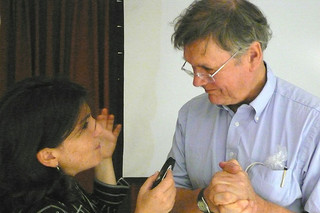
There are a number of ways to improve field staff data collection. Weekly training calls are a great start. The calls don’t need to be more than 15 or 20 minutes, but, by covering the basics, you can ensure that common mistakes are avoided. Additionally, by simply having the call, you can increase the confidence of the ethnographer (survey interviewer) when engaging consumers.
There are a few key points you should cover on any call.
1. Properly Reading Survey Questions
Ethnographers need to read each question exactly as it appears on the survey. Doing otherwise introduces interviewer bias, and invalidates the results.
2. Disclosing the length of the survey
When asking consumers to take a survey, let them know how many minutes the survey should take, or how many questions the survey contains (approximately). This will encourage consumers who may otherwise be deterred by potentially being stuck taking a survey for longer than five minutes.
3. Testing the survey
This is especially important for first-time ethnographers or new surveys. By having the ethnographer go through the survey a few times on their own, they can familiarize themselves with the flow of the survey. This makes it much less likely for them to be confused by the language of the survey.
We recommend having the ethnographer enter “9999” for any open-ended questions for test results, so they are not included in the final analysis.
Now that you have a properly trained ethnographer, how do you ensure that the training actually helps the data collection?
Ways to ensure accurate data collection
- An increased number of surveys per event can be a good indicator that the ethnographer is doing better. But, option number two ismuch better (albeit more expensive).
- Send a team member to observe data collection at a random event. This not only will ensure that the training is effective, but it will help you to identify other problems that need to be addressed for future training.
We recommend that the ethnographers not know they are being observed. This will help to ensure that you are witnessing data collection as it actually occurs when an observer is not present.
Ethnographers in the field can be your greatest asset if properly trained. They can be your worst nightmare if they are not.
Photo Source: https://www.flickr.com/photos/palomabaytelman/
